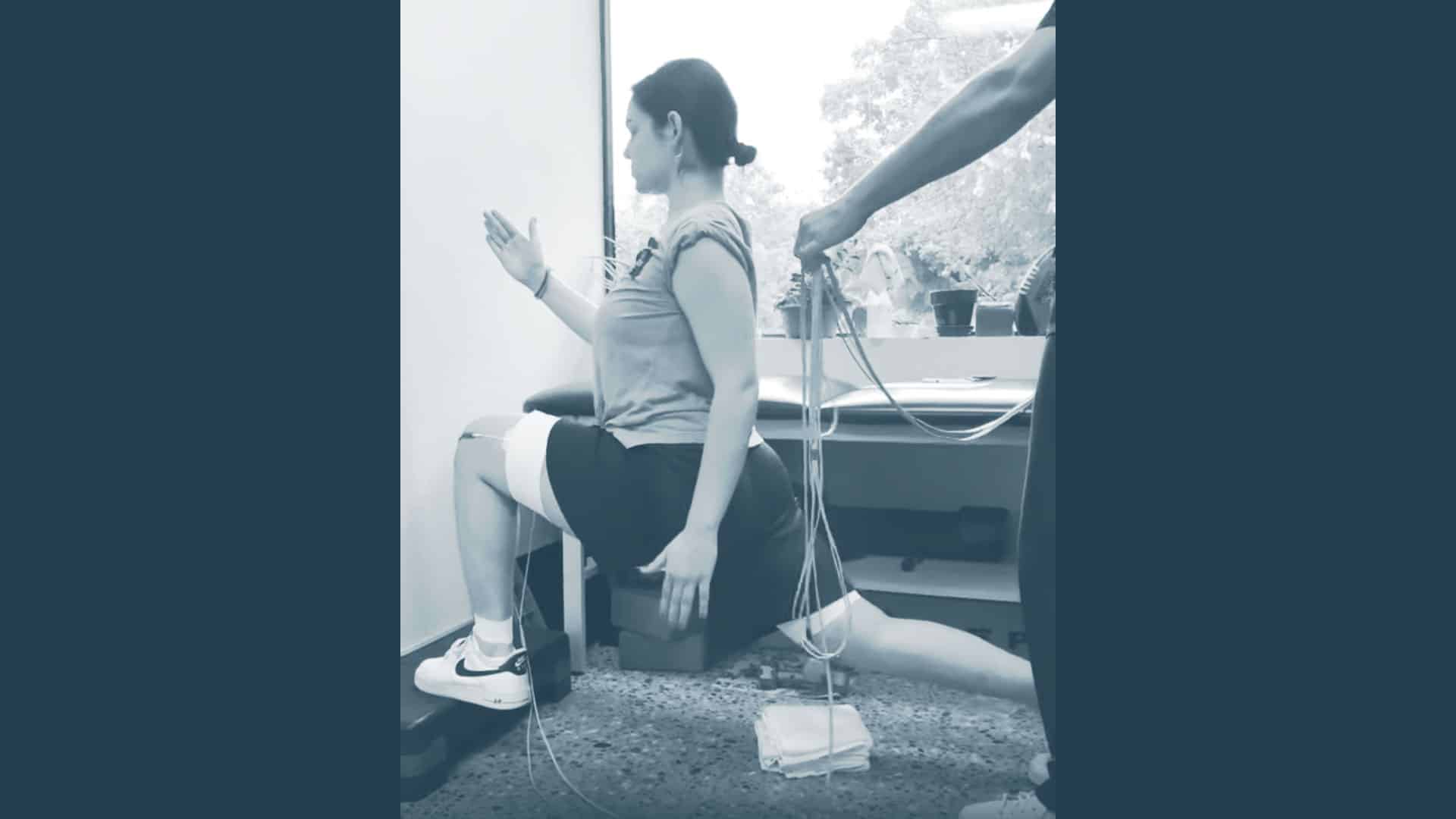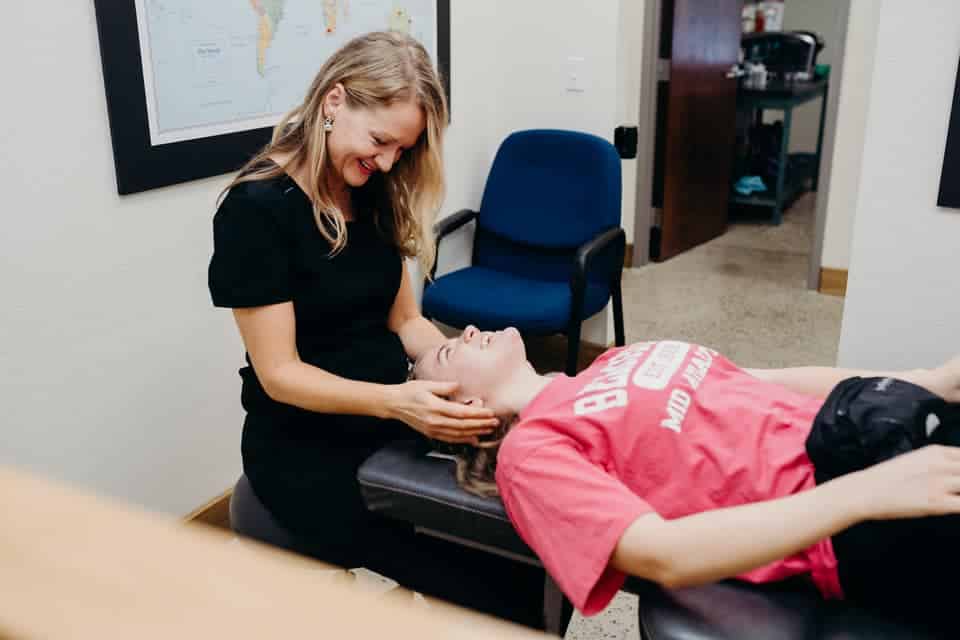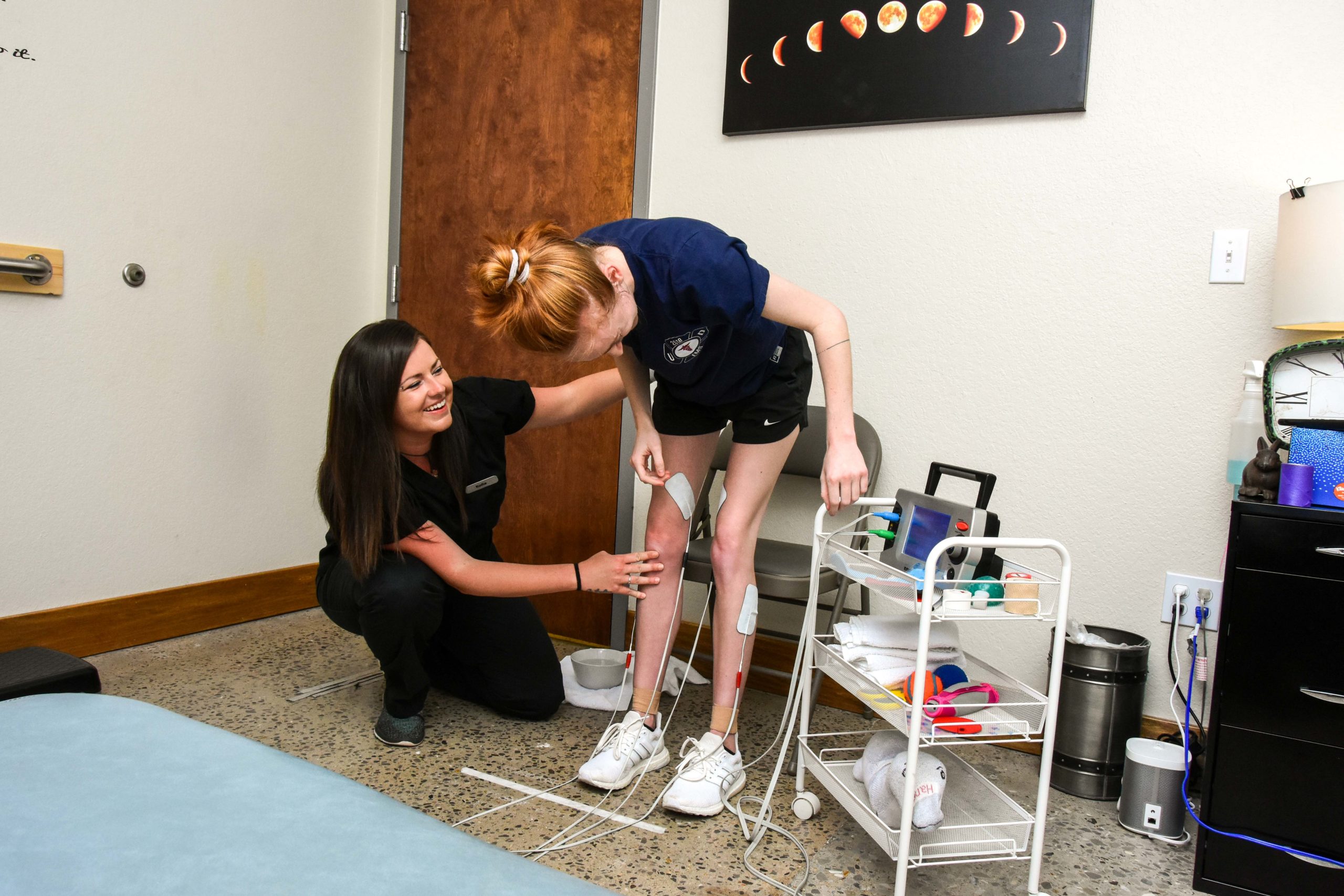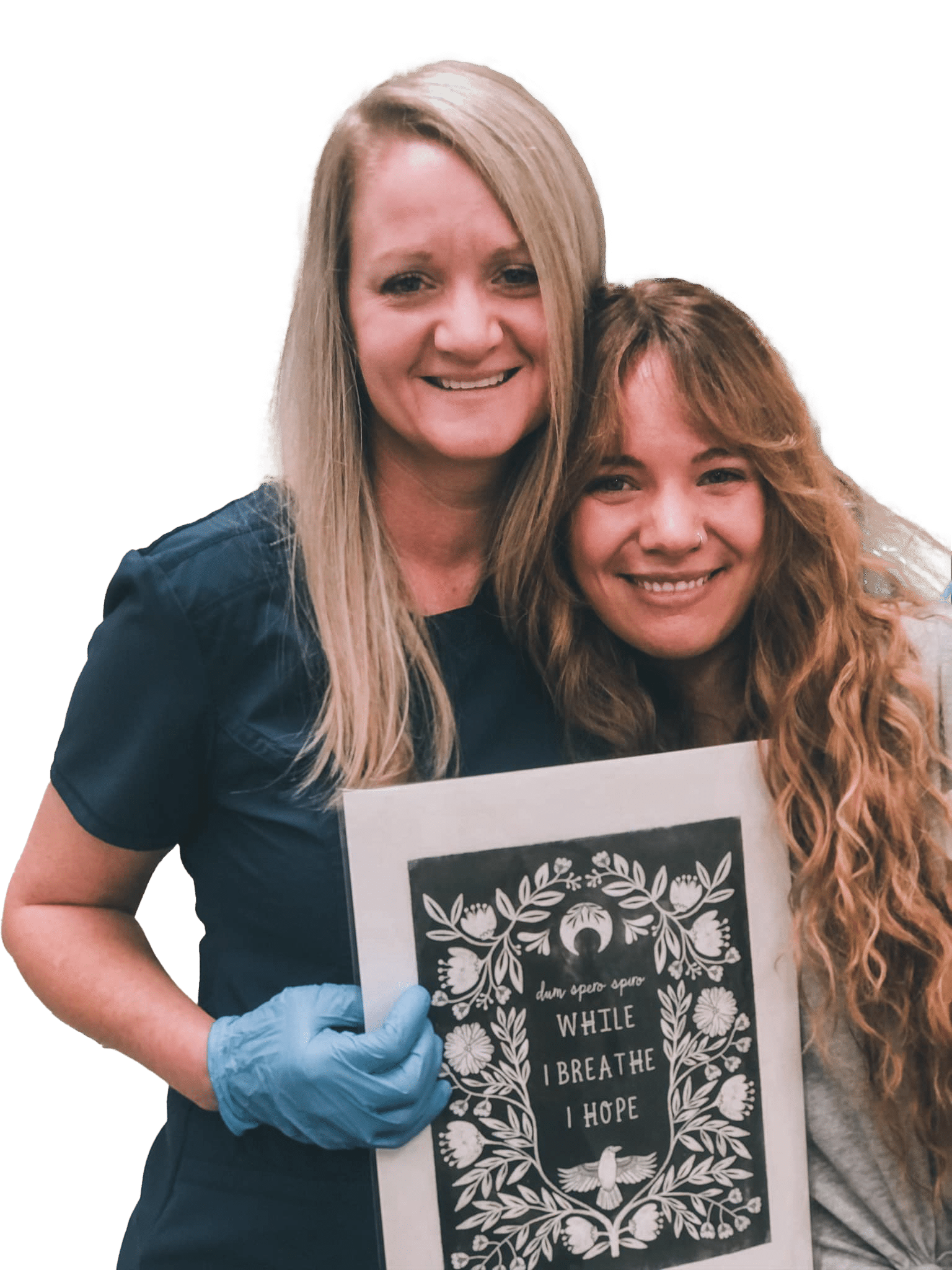You Did Not Choose This
A common emotion that I have noticed all CRPS patients share to a greater or lesser degree is guilt. Patients feel guilty for a variety of reasons. They often feel guilty because they feel that they have so little to contribute to all their relationships. They also feel guilty because of the money that has been spent through the years in an attempt to first find a diagnosis, and then relief.
They feel guilty when their health affects their family members’ lives and activities. They feel guilty when they can’t hug their children, can’t make love to their spouse, cannot work, and often feel that they are a constant drain on their families’ financial and emotional resources.
The thing about guilt is, it truly doesn’t fix anything. It only eats at you from the inside like an acid and at night, when everyone else is asleep, it lies to you and whispers to you that yes, truly, your family would be better off without you. It would be so insensitive of me, a person who has been healthy all her life, to try to convince you that life is good despite your pain and that butterflies and rainbows are to be found in your every day. You live in a hell the likes of which only other people who have walked (or limped) in your shoes can truly understand. Life is not good every day. Frankly, some days it must be hard to remember why you need to go on, and other days just plain suck.
Through the years, however, I have come to know a few great truths: You are alive today because your job here on earth is not done, plain and simple. If you truly could not contribute anything good anymore, I spiritually believe that it would be time for you to go, and that too would be alright in its great divine time. However, here you are. Alive, if not living. Breathing if not thriving. You MUST figure out why you are still here. What do you have to give? What haven’t you learned yet? What is left in life for you, and what do you have left to give others? Another truth is this: most of you do not realize how much you would be missed. You would be missed not as perfect you, healthy you, but YOU. Just the way you are, with your pain, your tough days, your moodiness, your neediness, your desperation, your disease.
Earlier this year my beloved mother-in-law passed away after many months of a debilitating and dignity-robbing illness. I watched this incredibly strong, proud human whither and suffer, and often heard her say; “you guys would be better off if I were gone”. The thing is, we aren’t better off. Yes, I loved her when she was healthy, painting our toenails together on my in-laws’ beautiful back porch or telling me hilarious stories about my husband’s illustrious childhood. However, I also loved her when she was sick. What I would give to have her back even for just one day, so we could visit and I could kiss her cheek and she could hold our babies.
You are loved too. Exactly the way you are. Most people are not islands. When we love and we are loved in return, we are charged with great responsibility. We form attachments and anchors here on earth binding us irrevocably to our loved ones. We impact their lives and they impact ours. They need us and they learn from us and when we go, we take a piece of them with us, so that they can never truly be whole like before again. You have to remember why your life matters. Broken as you are, you are here. If you can only kiss your grandchild on the cheek once today, you made his or her life better. If you could only watch a small part of a movie with your family tonight, you made your home warmer. If you could pet your dog just for a minute, you made its day. You are unique, an original, and you cannot be replaced.
CRPS AKA The Suicide Disease
It is difficult to find exact statistics on CRPS and suicide rates. However, through my years of working with CRPS, I have come across this on CRPS support groups as well as Facebook a heartbreaking number of times. Ninety percent of my CRPS patients have admitted to me that at one point or another, the thought of ending it all crossed their minds at least once. The thing about chronic pain is that it tends to drive you a little nutty over time. It makes problems seem larger than life, it causes depression, and it wears down your defenses. The truth is though, should you decide to end your life, you will leave behind a legacy of pain that you cannot begin to comprehend. While I am personally in favor of people with painful terminal diseases being allowed to choose to pass on in a humane manner of their own choosing, this should only be an option when all other options have been exhausted, in end-of-life situations. In my opinion, and as thoroughly discussed in this book, CRPS is NOT a hopeless disease.
It is my firm belief that in addition to medical support, every CRPS patient as well as their close family members need emotional support. While family and also individual counseling can prove invaluable, it is not always within everyone’s financial reach. However, support may come in many different shapes and forms. Once again, the Internet can prove to be an indispensable tool. In order to receive help, you must reach out and ask for it. No matter what stage of hardship you are in, there will always be someone who has been there, done that. People are usually very willing to help if only you ask.
In addition, your family members may reach out to other family members in the same position they are in. I have to make sure that you truly hear me in your heart when I say this: Please reach out to someone the moment you find yourself considering even for a moment the possibility of ending your life.
Thoughts are like your mind taking a walk. The first time you think a thought, you are cutting a new path across unchartered neurologic fields. Every time you subsequently think that thought, you are forming a footpath that eventually becomes a broad paved road. This road becomes familiar over time, easier and easier to travel on. Do not allow this to happen to you. Do not allow yourself to make a decision that you can never take back when the proverbial night is at its darkest and you are all alone and your thoughts are driven by screaming pain. Those around you who you will leave behind depend on you for their very happiness and sanity to not walk down that road.
National US Suicide Prevention Hotline: 1-800-273-8255. Anytime, 24/7.
Go to www.suicide.org/international-suicide-hotlines.html for international Suicide Prevention Hotlines listed by country.
Loving Someone Who Suffers From CRPS:
What it’s like to feel like collateral damage
When you are in a relationship with someone who suffers from chronic pain every day, your life changes in some pretty profound ways. The focus of your entire relationship shifts the moment your partner falls ill. No longer do you get to focus on the usual things nor work towards your old goals. Right off the bat, obtaining first a diagnosis, and then relief, pretty much takes over your lives. Together with this, financial strain will often become overwhelming. Not only do you face mounting medical bills, but often, also a partner who is now unable to contribute financially.
Guilt becomes your constant and silent companion. The person in pain feels guilty for all the reasons mentioned earlier in this chapter. In addition to feeling like a financial drain, daily pain tends to erode your identity as a man or a woman. When you are no longer able to do things for your spouse, to contribute financially nor physically to your daily household chores or parenting, you start to question your self-worth. What do you bring to your relationship? Your self-confidence slips. Why would anyone want to be tied to me? Am I still even sexy? Am I still attractive? Am I still wanted?
Being the other half of this couple is tough too. When we take those ‘for better or for worse, through sickness and in health’ vows, no one envisions a future that may include CRPS. It is easy to be understanding, supportive and loving if your partner has the flu or is involved in a car accident. The circumstances may not be ideal, but the story has an end. You know that after feeding them some chicken soup and doing some pampering your partner will recover and you will have him or her back the way they were before.
However, if your partner suffers from CRPS, the future is bleak by all accounts. The pain is daily, chronic, relentless, and it renders you helpless. You are leaned on pretty heavily, and you do get fatigued. It gets old, always having to be understanding, sympathetic, and strong. When you get frustrated, you may beat yourself up. Partners often feel that they don’t have the right to get overwhelmed nor frustrated. Sure, life dealt you an unfair hand, but at least you are not in daily pain, right? You watch your partner suffer and you feel so darn guilty for feeling tired, angry, cheated or resentful. You miss your partner the way they used to be. You may miss your fun times, their laughter, your dreams of the future, your old sex life. If you have children, you become like a single parent in many ways. Your heart aches for the parent that your kids are missing out on. The whole thing is complicated and heartbreaking. However, nothing can exist in darkness only.
Learning to love each other despite the unwelcome third partner that is daily chronic pain is not an easy task, but it is possible. I have seen it in my practice. Love is a beautiful, wonderful thing. The force of true love cannot ever be underestimated. Where there is love, the seed of greatness always exist. A relationship that has been forged in a fire becomes stronger and tough and able to weather all. You must find a way to recognize that love every single day. It is my spiritual belief that we are brought together by forces greater than us.
When we set out on a journey together, we do not know which obstacles we will face. We don’t know our road. All we can do is to believe that the road we are on has a purpose and lessons and blessings of its own which we cannot always understand in the moment. Hope, faith and love carry us through. As a couple you are stronger than you will ever know, until you have the chance to discover your own strengths. Having studied successful and loving couples who have coped and survived the pain of CRPS I am astounded at what is possible in the face of love. Patients have told me that while they would never wish the pain of CRPS upon anyone, they would not give back the gifts or blessings that surviving it together has given them.
In the meantime, you must both view yourselves much like electric appliances that need to be recharged from time to time. While leaning on each other can be a beautiful thing, you must also sometimes move away from each other in order to briefly recharge. This way, when you come back together, you will have more to give in addition to renewed strength. ‘Charging’ may come in many shapes or forms. Friends, family, time apart or support groups are all very valuable tools. The healthy partner needs loving support just as much as the sick partner does. Do not ever underestimate the power of recharging your battery.
I am a very big proponent of ongoing counseling. Ideally, counseling should be individual as well as in the form of couples counseling. Our worst fears are sometimes dispelled just being able to verbalize it to a third party. Every couple faces tough times and communication problems at least at some point. Couples dealing with CRPS face more obstacles than most. Every ounce of extra support is needed. Facing any hardship together is easier than facing it alone. You guys can do this. It is a fact. It has been done by many others.
Heartbreak At Its Worst: When You Aren’t Able To Be The Parent You Want To Be
Guilt takes on a whole new meaning once your children are involved. It is a sad fact that CRPS is so intense by nature, that it inadvertently will also touch your children’s’ lives. Even being a healthy parent can be tough, and will naturally always be accompanied by some guilt. As humans, we are going to make mistakes. Sometimes, those mistakes will affect our children. Our children will sometimes be forced to grow up faster than we would have liked for them. Just as we do not always get to pick our own circumstances, we do not get to pick our children’s circumstances either. Please remember that ultimately, your most important task as a parent is to love your child wholly and completely. CRPS may rob you of your smiles, your energy, and your ability to physically participate in your children’s lives. The one thing it cannot take from you, however, and that can never be underestimated, is love.
When I catch myself feeling riddled by guilt about dragging my son through a divorce, I always think back to a conversation I once had with one of my very wise mentors. He told me that we do not ever know what our children’s lives are supposed to look like. We often hold on to an ideal that we build up in our minds. This ideal usually involves strong happy secure families and our children not having to suffer any significant heartbreak if we can help it. We assume that our children should not suffer disappointment, abandonment, loneliness, or hard times. We love them so deeply, so purely, that we would gladly lay down our lives for them. We want their worlds to be perfect in ways that ours weren’t.
However, life was not meant to always be easy, not even if you are just a kid. The life we want for our kids may not be the life they chose in order to forge them into the adults they will one day become. We do not know what hardships today may serve them tomorrow, and truthfully, it is not our job to know. Our job is simple and direct: we must love them. No one can love your child more than you can. No one can replace you in this one important task. Even when you are physically or mentally absent due to pain, your love for your child is always there, and they know this. Know that it is normal to feel guilt, but that every parent feels guilt sooner or later anyway.
Think about life on earth as a blessing, but also an obstacle course, meant to make us stronger, tougher, wiser, more interesting, more loving, more understanding, and more resilient. Some of the greatest people in history grew up in very tough circumstances. Oprah Winfrey, Jim Carrey, Helen Keller, Tina Turner, Gloria Steinem, and Tyler Perry are just a few famous people who overcame incredibly difficult childhoods only to become successful later on in life. It is the belief of many spiritual people and also myself that we play a role in selecting our lives, our parents, and our circumstances for reasons not always immediately known. While you may not subscribe to this belief, you must at least be able to see that every dark cloud inevitably has a silver lining, and even the toughest lessons leave us with more wisdom after.
Once again, it is very important that every family coping with daily chronic pain suffered by one of its members should seek counseling and support in some form. It is very important that your children know that they are not to blame for the increased difficulties your family faces. Please know that you don’t have to be perfect or healthy as long as you love your child. Nobody can do that better than you. I bet that one day, when your child is an adult and looks back, they would still choose to have had you around, exhausted and in pain, rather than not having had you around at all.
Just do the best you can. Surround yourself with a strong support network that can pick up the slack where your health forces you to fall short sometimes. You don’t have to be a perfect healthy parent. What matters is being there at night to tuck them in and tell them you love them. Explain that sometimes you hurt, but that everything is going to be OK, that you are doing your best, and that you love them and always will.
If you have a significant other, understand that if your roles were reversed, you would be the primary practical caregiver. Let them be that, and you focus on just doing the best you can while still being gentle with your sick body. When people offer to help you, accept their help. You deserve support where and when you can get it. Your children deserve it also. Do not try to be a superhero. Allow your child to help you in small ways. This may be as simple as just bringing you a glass of water or giving you a hug. While no one wants their child to become their nurse, it is important that your child learns at a young age that we help to take care of and support those we love who are in need. Make sure that you explain your condition openly and honestly to your child. This will help them to understand your limitations and also to not take it personal. Open and honest communication is vital. Your child needs to understand that while you are hurting, you are not dying, and they do not have to be afraid for you. Security is very important to children of all ages.
Contact The Spero Clinic
Dr. Katinka and the staff at The Spero Clinic work with CRPS patients daily and have seen tremendous improvements in the quality of life of their patients. Contact the Spero Clinic today.






